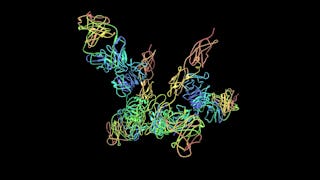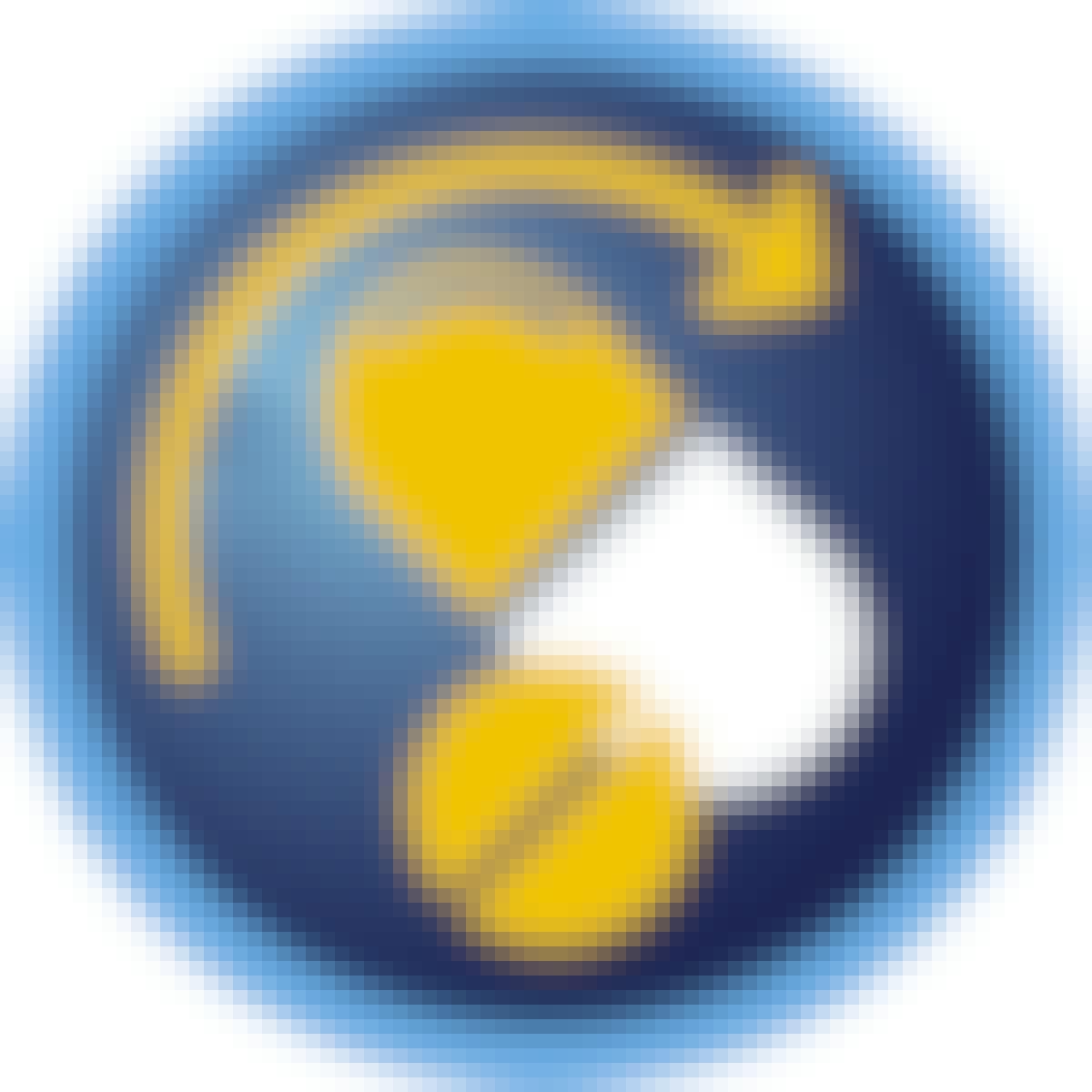- Browse
- Pharmacology
Pharmacology Courses
Pharmacology courses can help you learn drug classifications, pharmacokinetics, pharmacodynamics, and therapeutic applications. You can build skills in dosage calculations, understanding drug interactions, and evaluating clinical trial data. Many courses introduce tools such as pharmacological databases and software for drug analysis, that support conducting research and making informed decisions in clinical settings. By exploring these topics, you can gain a comprehensive understanding of how medications work and their impact on patient care.
Popular Pharmacology Courses and Certifications
 Status: Free TrialFree TrialN
Status: Free TrialFree TrialNNovartis
Skills you'll gain: Drug Interaction, Pharmacology, Pharmaceuticals, Pre-Clinical Development, Drug Development, Medication Administration, Pharmaceutical Terminology, Clinical Research, Laboratory Research
4.9·Rating, 4.9 out of 5 stars68 reviewsIntermediate · Course · 1 - 4 Weeks
 Status: Free TrialFree TrialM
Status: Free TrialFree TrialMMedCerts
Skills you'll gain: Medical Terminology, Pharmacy Experience, Medication Dispensation, Pharmacist Assistance, Medical Prescription, Pharmacology, Conflict Management, Pharmacy Operations, Anatomy, Pathology, Pharmacy Information System, Cultural Responsiveness, Patient Safety, Patient Education And Counseling, Patient-centered Care, Pharmacy, Professionalism, Medication Administration, Medical Records, Physiology
4.7·Rating, 4.7 out of 5 stars1.3K reviewsBeginner · Specialization · 3 - 6 Months
 Status: Free TrialFree TrialJ
Status: Free TrialFree TrialJJohns Hopkins University
Skills you'll gain: Pharmacology, Pharmaceuticals, Patient Safety, Clinical Research, Medical Prescription, Pharmacotherapy, Clinical Trials, Epidemiology, Regulatory Compliance, Health Policy, Continuous Monitoring, Public Health, Event Monitoring, Risk Analysis
4.8·Rating, 4.8 out of 5 stars79 reviewsMixed · Course · 1 - 4 Weeks
 Status: Free TrialFree TrialU
Status: Free TrialFree TrialUUniversity of California San Diego
Skills you'll gain: Drug Development, Pharmaceuticals, Pharmacology, Pre-Clinical Development, Clinical Trials, Biotechnology, Bioinformatics, Precision Medicine, Molecular Biology
4.6·Rating, 4.6 out of 5 stars3.9K reviewsBeginner · Course · 1 - 3 Months
 Status: Free TrialFree Trial
Status: Free TrialFree TrialSkills you'll gain: Medication Dispensation, Pharmacist Assistance, Medical Prescription, Pharmacy Operations, Pharmacology, Patient Safety, Pharmacy, Medication Administration, Pharmaceutical Terminology, Pediatrics, Intravenous Therapy, Systems Of Measurement
4.6·Rating, 4.6 out of 5 stars66 reviewsBeginner · Course · 1 - 4 Weeks
 Status: PreviewPreviewD
Status: PreviewPreviewDDuke University
Skills you'll gain: Physiology, Pulmonology, Respiration, Anatomy, Endocrinology, Cardiology, Human Musculoskeletal System, Kinesiology, Nephrology, Biology, Vital Signs, Blood Pressure, Neurology, Urinalysis
4.8·Rating, 4.8 out of 5 stars5.3K reviewsBeginner · Course · 1 - 3 Months
What brings you to Coursera today?
 Status: Free TrialFree TrialJ
Status: Free TrialFree TrialJJohns Hopkins University
Skills you'll gain: Medication Therapy Management, Drug Development, Clinical Trials, Pharmaceuticals, Pharmacotherapy, Pharmacology, Medical Prescription, Patient Education And Counseling, Clinical Research, Pre-Clinical Development, Drug Interaction, Patient Safety, Medical Devices, Statistical Analysis, Value-Based Care, Epidemiology, Utilization Management, Program Evaluation, Public Health, Data Analysis
4.7·Rating, 4.7 out of 5 stars115 reviewsIntermediate · Specialization · 3 - 6 Months
 Status: Free TrialFree Trial
Status: Free TrialFree TrialSkills you'll gain: Pre-Clinical Development, Drug Interaction, Clinical Trials, Pharmacology, Drug Development, Pharmaceuticals, Patient Safety, Clinical Research, Competitive Intelligence, Safety Standards, Laboratory Testing, Biochemical Assays, Medication Administration, Pharmacotherapy, Pharmaceutical Terminology, Safety Assurance, Biotechnology, Biochemistry, Laboratory Research, Chemistry
4.8·Rating, 4.8 out of 5 stars277 reviewsIntermediate · Specialization · 3 - 6 Months
 Status: Free TrialFree TrialA
Status: Free TrialFree TrialAAmerican Psychological Association
Skills you'll gain: Substance Abuse, Mental Health Diseases and Disorders, Clinical Psychology, Mental and Behavioral Health, Psychiatry, Psychological Evaluations, Mental Health, Cognitive Behavioral Therapy, Patient Evaluation, Diagnostic Tests, Behavioral Health, Psychotherapy, Psychiatric Assessments, Cultural Diversity, Epidemiology, Pharmacology, Neurology, Demography, Psychology, Pharmacotherapy
4.8·Rating, 4.8 out of 5 stars310 reviewsBeginner · Specialization · 3 - 6 Months
 Status: Free TrialFree TrialU
Status: Free TrialFree TrialUUniversity of California San Diego
Skills you'll gain: Drug Development, Clinical Trials, Pharmaceuticals, Clinical Research, Commercialization, Pre-Clinical Development, Good Clinical Practices (GCP), Pharmacotherapy, Pharmacology, Regulatory Affairs, Intellectual Property, Sales Strategy, Biotechnology, Portfolio Management, Bioinformatics, Precision Medicine, Strategic Partnership, Regulatory Compliance, Marketing, Marketing Strategies
4.6·Rating, 4.6 out of 5 stars6.5K reviewsBeginner · Specialization · 3 - 6 Months
 Status: Free TrialFree TrialU
Status: Free TrialFree TrialUUniversity of California San Diego
Skills you'll gain: Drug Development, Commercialization, Pharmaceuticals, Pharmacotherapy, Pharmacology, Intellectual Property, Sales Strategy, Clinical Trials, Portfolio Management, Strategic Partnership, Regulatory Affairs, Marketing Strategies, Business Strategies, Market Opportunities
4.7·Rating, 4.7 out of 5 stars1.3K reviewsBeginner · Course · 1 - 3 Months
 Status: Free TrialFree TrialI
Status: Free TrialFree TrialIIcahn School of Medicine at Mount Sinai
Skills you'll gain: Matlab, Bioinformatics, Quantitative Research, Unsupervised Learning, Data Synthesis, Research, Mathematical Modeling, Molecular Biology, Pharmacology, Science and Research, Cell Biology, Biotechnology, Biomedical Technology, Scientific Methods, Physiology, Differential Equations, Computational Logic, Biochemistry, Network Analysis, Biology
4.4·Rating, 4.4 out of 5 stars988 reviewsIntermediate · Specialization · 3 - 6 Months
In summary, here are 10 of our most popular pharmacology courses
- Pharmacokinetics: Novartis
- Pharmacy Technician Fundamentals: MedCerts
- Pillar #4: Drug Safety - Pharmacovigilance: Johns Hopkins University
- Drug Discovery : University of California San Diego
- Pharmacy Dosages and Prescriptions Essentials: MedCerts
- Introductory Human Physiology: Duke University
- Drug Development and Pharmacoepidemiology: Johns Hopkins University
- Drug Hunting: The Science of Making New Medicines: Novartis
- Psychology of Anxiety, Mood, Substance Use, and Addictive Behaviors: American Psychological Association
- Drug Development Product Management: University of California San Diego
Frequently Asked Questions about Pharmacology
Pharmacology is the branch of medicine that focuses on the study of drugs and their effects on the human body. It encompasses the understanding of how drugs interact with biological systems, including their therapeutic effects, side effects, and mechanisms of action. This field is crucial because it informs the development of new medications, guides safe prescribing practices, and enhances patient care. By understanding pharmacology, healthcare professionals can make informed decisions that improve patient outcomes and contribute to public health.
A career in pharmacology can lead to various job opportunities across multiple sectors. Common roles include clinical research associate, pharmacologist, regulatory affairs specialist, and pharmaceutical sales representative. Additionally, positions in academia, such as teaching and research roles, are also available. These jobs often require a solid understanding of drug mechanisms, regulatory processes, and patient care, making pharmacology a versatile field with numerous pathways for career advancement.
To succeed in pharmacology, you should develop a range of skills. Key competencies include a strong foundation in biology and chemistry, analytical thinking, and attention to detail. Familiarity with research methodologies and data analysis is also essential, as pharmacologists often conduct experiments and interpret results. Communication skills are important for conveying complex information to both scientific and non-scientific audiences. Additionally, understanding regulatory frameworks and ethical considerations in drug development is crucial for navigating the field effectively.
There are many online courses available for those interested in pharmacology. Some of the best options cover foundational topics, drug discovery, drug interactions, and clinical applications. Look for courses that offer practical insights and real-world applications. For example, you might explore courses that focus on specific areas such as drug development or pharmacotherapy. These courses can provide valuable knowledge and skills that are applicable in various healthcare settings.
Yes. You can start learning pharmacology on Coursera for free in two ways:
- Preview the first module of many pharmacology courses at no cost. This includes video lessons, readings, graded assignments, and Coursera Coach (where available).
- Start a 7-day free trial for Specializations or Coursera Plus. This gives you full access to all course content across eligible programs within the timeframe of your trial.
If you want to keep learning, earn a certificate in pharmacology, or unlock full course access after the preview or trial, you can upgrade or apply for financial aid.
Learning pharmacology can be approached through a combination of online courses, textbooks, and practical experiences. Start by enrolling in introductory courses that cover the basics of pharmacology. Supplement your learning with content that provide in-depth information. Additionally, consider seeking internships or volunteer opportunities in healthcare settings to gain hands-on experience. Engaging with professionals in the field can also provide valuable insights and guidance as you navigate your learning journey.
Pharmacology courses typically cover a range of topics, including drug classifications, mechanisms of action, pharmacokinetics, and pharmacodynamics. You will also learn about the therapeutic uses of drugs, potential side effects, and interactions with other medications. Advanced courses may explore specialized areas such as clinical pharmacology, toxicology, and drug development processes. This comprehensive curriculum equips you with the knowledge needed to understand how drugs affect the body and how they can be used effectively in patient care.
For training and upskilling employees in pharmacology, look for courses that focus on practical applications and current industry practices. Courses that cover regulatory affairs, clinical trials, and drug safety are particularly beneficial for professionals in the pharmaceutical and healthcare sectors. These programs can enhance the skills of your workforce, ensuring they are well-equipped to navigate the complexities of pharmacology in their roles. Investing in such training can lead to improved patient care and compliance with industry standards.










